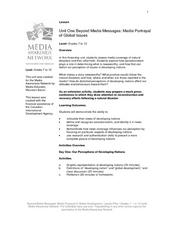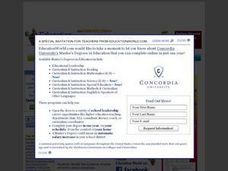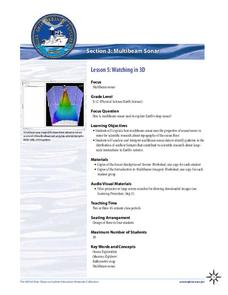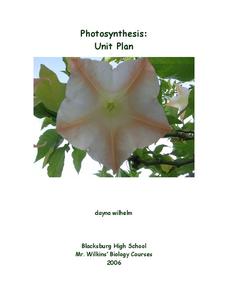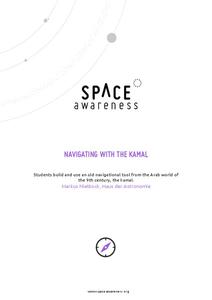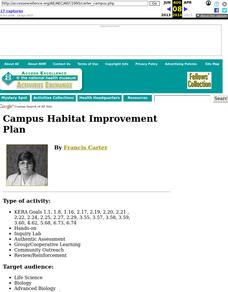Curated OER
The Science and Technology of Food
Learners examine the guidelines the United States Department of Agriculture places on food. In groups, they create a list of the foods they consume and discuss the political and environmental implications of purchasing the food. They...
Curated OER
Beyond Media Messages: Media Portrayal of Global Issues
Take a close look at news reporting techniques and global issues. Begin by creating a graphic representation of developing nations and defining the term. After class discussion, the second day's activities pick up by deconstructing news...
National Park Service
It's Not Easy Being Grizz
Grizzly bears can be up to 600 pounds and require a great deal of food, especially to survive hibernation. Comprised of multiple games, the third lesson of five only uses one setup. Pupils run around a large field, sorting and collecting...
Curated OER
Fracking: Positive or Negative Impact?
Your teenagers may have heard of fracking, but do they really know what it is? And could they debate the benefits and risks? Educate your environmental science class with a activity about hydraulic fracturing, non-renewable energy...
Baylor College
Food for the Brain
With a couple of neat diagrams on student handouts, your life science or health class will examine the contents and serving sizes of healthy foods. They dissect a slice of pizza and scrutinize the nutritional value of its components in...
Curated OER
Understanding Climate Change
The young scientists in your class will appreciate a resource about different elements of climate change. The packet includes factual materials, informational text, and clear visuals, perfect for sharing with your environmental science...
America's Blood Centers
My Blood, Your Blood
Dracula isn't the only one who needs blood to survive. The eight-part unit includes seven lessons, five demonstrations, seven labs, and a project to organize a blood drive. Class members learn about the parts of blood, the form and...
Curated OER
Where in the World Is That Volcano?
Identify the Earth's major volcanoes with an earth science lesson plan. Elementary and middle schoolers locate major volcanoes on a world map. Then, in groups, they research how the volcano affects the region in which it is located.
NOAA
Watching in 3D
Bring the ocean floor to life! Earth science scholars discover the process of deep sea mapping in the third installment in a series of five lessons about ocean exploration. The teacher's guide includes helpful resources, worksheets, and...
Institute of Electrical and Electronics Engineers
Making Sense of Sensors
Have small groups in your class construct working hygrometers as an example of the benefits of using sensors in engineering. This activity can be used during a weather unit when covering humidity or in a STEM activity as a preparation...
University of Wisconsin
Follow the Drop
Young surveyors look for patterns in water flow around campus. Using a map of the school (that you will need to create), they mark the direction of the path of water. They also perform calculations for the volume that becomes runoff. The...
LABScI
Genetic Equilibrium: Human Diversity
Investigate the Hardy-Weinberg Principle to explain genetic equilibrium. The 10th lesson plan of a series of 12 is a laboratory exploration of genetic equilibrium. Your classes use a mixture of beans to model allele and genotype...
NOAA
History's Thermometers
How is sea coral like a thermometer? Part three of a six-part series from NOAA describes how oceanographers can use coral growth to estimate water temperature over time. Life science pupils manipulate data to determine the age of corals...
University of Wisconsin
Rain Garden Species Selection
The activity really comes to life within its intended unit on starting a rain garden. Working in groups, participants research native plants and coordinate them with the conditions in the designated garden area. Give the class access to...
Institute of Electrical and Electronics Engineers
Engineered Music
Sound engineers investigate the structural design of a musical instrument, the recorder. They work in collaborative groups to choose an instrument to build out of everyday craft materials. It must be able to repeat a three-note sequence...
BioEd Online
Spiders in Space
Does a spider spin its web differently in space? What other ways might microgravity affect an arachnid? Pick a topic to research, plan an investigation, and follow astronauts on the International Space Station as they perform some of the...
PBS
The Ocean and Climate: Heat Redistribution
Here on Earth, heat goes with the flow! Young climatologists dive in to the connection between ocean currents and heat distribution during a science lesson plan. Scholars work with interactive and print resources to create a thorough...
University of Wisconsin
Rain Garden Maintenance
Maintaining a garden is an ongoing responsibility. This resource follows a series of activities in a unit that resulted in the planting of a rain garden. What you will find here are general instructions for watering, weeding, pruning,...
Curated OER
Photosynthesis
We all know photosynthesis happens, but why should we care? Here is a unit that covers everything young scholars need to know about photosynthesis. Hands-on activities, assessments, and lectures guide pupils though the physiology of a...
eGFI
Crystal Study
Diamonds are a girl's best friend! Crystal labs can be a science teacher's best friend because watching crystals develop is fascinating, and it results in such a pretty product! This activity is unique because the crystals are grown...
Earth Day Network
Staying Green While Being Clean
Clean up the environment with a lesson that focuses on replacing hazardous cleaning supplies with green, environmentally-friendly products. Using a dirty patch of surface as a control area, kids clean other parts of various surfaces...
Space Awareness
Navigating with the Kamal
Historians have proven that as early as 1497 skilled navigators were using a kamal to sail across oceans. Scholars learn about navigation tools and astronomy before building their own kamals. They then learn how to use it to determine...
Curated OER
High Performance in Agriculture Science: Graduates Outperform Others
Students plan for their future by exploring occupational experience programs.In this career lesson students list activities that they will participate in in the future and complete a career exploration project.
Curated OER
Campus Habitat Improvement Plan
Young scholars work to improve a plot of land. They assess the needs of the environment and formulate a plan. They plant trees and gardens, build bird boxes, construct waterholes. etc.
Other popular searches
- Science Unit Lesson Plans
- Science Unit Plans
- Science Inquiry Unit Plans
- Earth Science Unit Plans
- Life Science Unit Plans
- 5e Science Unit Plans
- Physical Science Unit Plans
- Reading Science Unit Plans
- Easy Science Unit Plans
- Geography Unit Plan Science
- Science Thematic Unit Plans
- Unit of Science Lesson Plans



